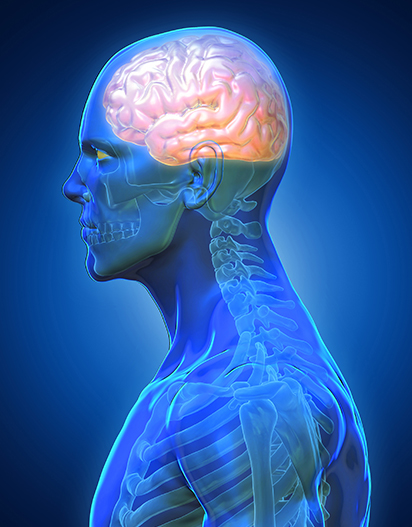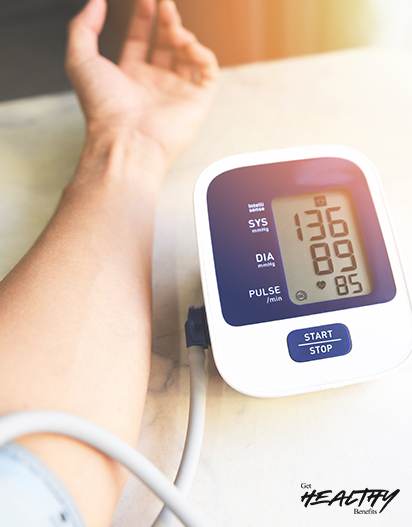Mind Matters: The Hidden Connection between Mental and Physical Health
People sometimes misunderstand the relationship between mental and physical health. But it really matters! Our overall health depends on both, and they are intimately connected. According to the World Health Organization, being healthy means more than just not getting sick; it means being physically, mentally, and socially healthy.
It's easy to misunderstand mental illness by thinking of it as just sadness or anxiety. But it's much broader, covering a range of psychological problems such as mood and behavioral disorders.
However, taking care of our mental health can also significantly impact our physical health. It helps us to live better and can prevent even severe illnesses.
In this blog post, we'll dive into something really important – the relationship between mental and physical health. We talk about a study to make people more aware of this. Understanding how mental illness can affect our physical well-being is essential. We'll also look at a few situations that can occur when we don't get the right psychological support. But don't worry; we'll also talk about ways to strike a balance between taking care of our mental and physical well-being. Let's get into that!
Read our detailed article, "Mental Health: The Foundation of a Happy and Fulfilling Life
The Connection Between Mental and Physical Health
Our mental and physical health are entangled – they are totally connected! If one is doing well, it can positively affect the other, and if one is struggling, it can also affect the other. Recent research has shown that when people go through mental issues like depression and anxiety, they can be affected by chronic diseases or weaken their immune systems. On the other hand, certain physical conditions, such as diabetes, heart disease, and cancer, can lead to depression and other mental illnesses.
Therefore, taking care of our mental and physical health is crucial. We cannot treat them as separate things! We can achieve the best overall well-being by taking care of all of them. Let's give our health the attention it deserves!
How does Mental Health affect Physical Health?
Your mental health can really affect your overall well-being. A positive mental state can make you healthier and help you avoid serious health problems. A study found that having a positive mental attitude can also reduce the chances of heart disease and stroke.
ImG source: Gethealthybenefits
Chronic Diseases and Mental Health
Dealing with a chronic illness can be really hard, and if you also have a mental illness, things can be even more complicated. People with depression or other mental illnesses may struggle to cope with conditions like cancer or heart disease. In fact, the chances of not suffering from these diseases may be higher for them.
Schizophrenia, another mental illness, is also associated with an increased risk of cardiorespiratory disease. So, our minds are more connected to our bodies than we think.
Sleep Disorders and Mental Illness
Did you know that sleep is also linked to mental health? It's true! People with mental illness often experience sleep problems such as insomnia or sleep apnea.
Insomnia can be a real pain, making falling asleep or staying asleep a real challenge. Similarly, sleep apnea can disrupt your breathing, causing you to wake up more often at night. There is no joy at all!
In fact, between half and four-fifths of people with mental illness have difficulty sleeping. That's much more than only 10% to 18% of the general population.
Not only can conditions like depression, anxiety, and bipolar disorder contribute to sleep disorders, but sleep disorders can contribute to existing mental illnesses also destroyed. It's like a two-way street!
Smoking and Mental Health
There is a strong link between smoking and mental health. People with mental illness are more likely to smoke than people without mental illness. And when they smoke, they smoke more.
There is a scientific fact: people with depression have low brain dopamine levels. Dopamine is like a happy chemical that makes you feel good. Now, the nicotine in cigarettes tricks your brain into producing more dopamine, which can give you a temporary feeling of happiness. Thus, some people with depression may smoke to alleviate their symptoms.
But the catch here is that the effects of nicotine don't last long, so people have to smoke more to get that relief. And so adversity can sneak up on you.
IMG source: Gethealthybenefits
Read More: What Exercises Should Be Avoided With High Blood Pressure?
Physical Health Conditions That Affect Mental Health
Guess what? Our physical health can also impact our mental health! It's a two-way road. Having specific physical health issues can also lead to mental illness. Thus, they appear to be related and can influence each other. It is as important to take care of our bodies as it is to take care of our minds! So, you know about psoriasis? It is the skin condition that causes those painful red bumps. Well, it turns out it's not just physical – it can also mess with your emotions. Stress and depression are often associated with psoriasis, making life more difficult.
People with psoriasis can have all sorts of emotional and psychological problems, which really takes a toll on their overall health and happiness. Anxiety and depression often result from feeling anxiety, experiencing stigma, and dealing with rejection.
IMG source: Gethealthybenefits
But psoriasis alone cannot cause these feelings. Being diagnosed with cancer or heart disease can also cause depression or anxiety. It's a tricky thing. In fact, about one-third of people with severe medical conditions eventually experience depressive symptoms such as hopelessness, sleep problems, and loss of interest in things they used to enjoy.
So, paying attention to our physical and emotional health is super important. Let's look at ourselves inside and out!
Read More: The Top Activities to Beat Hypertension
Tips For Creating a Healthy Body and Mind
Let's talk about how to keep our bodies and minds in top shape! Taking care of our mental health is super important, but there's more.
Here are some simple ways to work towards a healthy mind and body.
Take Enough Sleep
Sleep is the ultimate rejuvenator! Difficult situations are easier to deal with when we get enough sleep. Stay away from your phone an hour before bed to sleep well at night. Young adults generally need 8 to 10 hours of sleep, while older people need at least seven hours a night.
Do Exercise Daily
Exercising regularly is like magic for your health! It boosts your happy hormones (endorphins) and keeps your joints healthy. If you're busy, don't worry – you can cycle to work or take a brisk walk to get some exercise. If you don't like cardio, no problem! Strength training is incredible for building muscle and helps with your mental well-being.
Do Meditation
You don't have to be a meditation expert to practice mindfulness. Clearing your mind in a quiet room can be as simple as taking a moment or following a guided meditation app. Mindfulness and spirituality have been shown to improve both physical and mental health. So, give it a try!
Try to Maintain a Healthy Weight
Maintaining a healthy weight is great for your quality of life and reduces the risk of various diseases such as heart disease, high blood pressure and cholesterol. It's all about finding the right balance – run some exercise and make health-conscious food choices to keep you active.
Balanced Diet is Important
What we eat is very important! Processed and high-calorie foods may taste good but can cause health issues like depression and anxiety. So, choose a balanced diet with plenty of fruits, vegetables, whole grains, and healthy fats. And if you're having trouble getting all the nutrients, ask your doctor about taking vitamins.
With these simple efforts, we can ensure that our bodies and minds are in top condition. Let's stay healthy and happy together!
FAQ's
Is social media bad for mental health?
The Department of Health and Human Services has some interesting findings about social media. They say that although it can help in some ways, spending too much time on social media may not be as good for young people. According to their research, if young people use social media for more than three hours daily, they are twice as likely to develop mental illness. So, it's important to remember how much time we spend on social media to monitor our mental well-being.
What workaholism reveals about mental health?
You know, there's this thing called workaholism, where people work too much to be workaholism. Well, it turns out this can be linked to anxiety and depression. Some studies have shown that overwork can cause these problems. But interestingly, some psychologists believe the opposite might actually be true. They think that people can use work to manage their depression and anxiety. But either way, finding the right balance between work and looking after our mental well-being is important.
How to get a mental health diagnosis?
Suppose you are dealing with everyday issues such as sadness or anxiety. In that case, your usual general practitioner can figure out what is going on after just one or two visits. However, if your struggles are minor or more severe, they may refer you to a mental health professional such as a psychiatrist. These specialists may want to see you for a while before making a final diagnosis. So, it all depends on the situation, but the main goal is to get the right help and support you need.
Share this post
Subscribe to new posts











